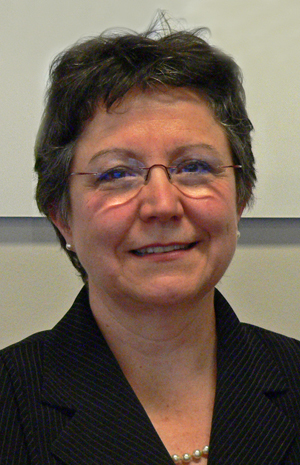OTTAWA - The speech that Supreme Court of Canada Justice Louise Charron decided not to give at a recent symposium on women in the legal profession might have sent shock waves through the ranks of Bay Street lawyers.

As it is, just the text of her prepared speech, included in the literature taken home by more than 100 female lawyers, will likely stir debate through the legal community for some time to come.
The text, prepared for Charron by a former Supreme Court law clerk who now lectures at the University of Ottawa, criticizes the desire for profit and long billing hours that drive big firms in private practice.
The speech, undelivered but still circulated under Charron’s name as part of the literature for the Women Lawyers’ Symposium in Ottawa earlier this month, adds the “priority of profit” to a list of reasons for why a third of women lawyers quit within 10 years after their call to the bar.
“The ‘priority of profit’ represents a significant barrier to institutional change in the private practice environment,” the text of Charron’s speech says. “Many law firms are so focused on profit that they may be unable to appreciate the value of apparently ‘competing’ priorities like shorter hours, flexible work schedules or pro bono legal work.
Lawyers who value non-monetary goods, including family, social time or community endeavours, may feel that they simply cannot or do not wish to compete in the money-driven world of a law firm.”
The speech was prepared “at the direction” of Charron by former law clerk Jena McGill, an attribution says. Footnotes cite several recent reports and data from Canada and abroad to demonstrate that progress has been slow since former Supreme Court of Canada justice Bertha Wilson led a Canadian Bar Association task force on gender equality in the legal profession in 1993.
“Until the necessary evolutions in our society are fully realized, an immediate step towards remedying women’s attrition from private practice is for law firms to adapt and accommodate their practices to the current realities of women’s lives,” the text says.
Though Charron pointed out the prepared speech to her audience, all but a handful of whom were women, she decided to focus her remarks instead on her own experience balancing her career as lawyer and judge, her personal and professional lives, and the need for flexible work arrangements.
She did, however, joke about the cost of legal services.
“One of the things justice Charron said, tongue-in-cheek somewhat, but I think it was the only issue she raised in this regard, [was] ‘I can’t afford a lawyer,’” says Alison Dewar, a labour lawyer with Raven Cameron Ballantyne & Yazbeck LLP in Ottawa.
“If she can’t afford to have a lawyer, then who can? Of course, she was saying it tongue-in-cheek but she was also saying it to make a point about how maybe some of the ways in which we’re doing things is not worthwhile.”
Dewar agrees demands for long billing hours and time pressures are a barrier for women who want to start families, something made worse by the fact that, in most cases, the female spouse continues to shoulder most of the family burden at home.
“You get judgments about whether you’re suitable for a partnership in your first maybe seven years or so,” says Dewar, pointing out maternity leave affects billable hours during that key period.
“The pressure for profit is an enormous systemic barrier. It affects young men in very negative ways as well. If a young man wants to, for example, take parental leave [and] wants to be an equal partner in the house, his ability to do those kinds of hours is very difficult as well.”
Laurie Pawlitza, co-chairwoman of the Law Society of Upper Canada’s Retention of Women in Private Practice project, says the need for transforming the traditionally male-dominated environment at many law firms surfaced at symposium workshops.
She tells Law Times one of the panellists noted her firm offers Toronto Raptors tickets to partners for business and client development but said she would prefer taking clients, along with their spouses, to an activity like the Toronto International Film Festival.
“So, it’s about recognizing that it’s perhaps time to broaden our horizons about things like business development and client development and what women will access in the firms with respect to that,” says Pawlitza.
Tom Conway, a bencher and litigator with Cavanagh Williams Conway Baxter LLP in Ottawa who was instrumental in the law society’s efforts on women in the profession, says firms face pressure to change.
“There’s a generational component to what we’re doing,” he says.
“A lot of people coming into the profession now, men and women, are saying, ‘You know, I want to have a family and I want to have a practice but I want them both and I don’t want to be sacrificing my family for my career.’”
One of the more high-profile figures in Canadian law, Clayton Ruby, says it’s time the LSUC addressed the problem directly.
“We’ve been talking about it for over a decade, and it’s time for the governing body to actually make some changes,” he says. “While it’s good and important to talk about it and to approve programs that people are having and to make sure that we communicate what things can be done, it’s time to take it more seriously.”
For more on this issue, see "LSUC all talk on women and legal aid" and "LSUC on women and legal aid"

 As it is, just the text of her prepared speech, included in the literature taken home by more than 100 female lawyers, will likely stir debate through the legal community for some time to come.
As it is, just the text of her prepared speech, included in the literature taken home by more than 100 female lawyers, will likely stir debate through the legal community for some time to come.